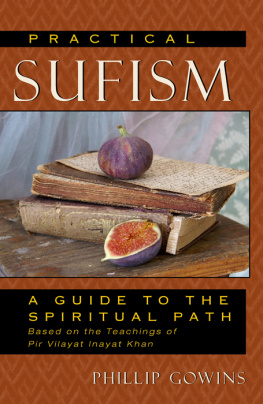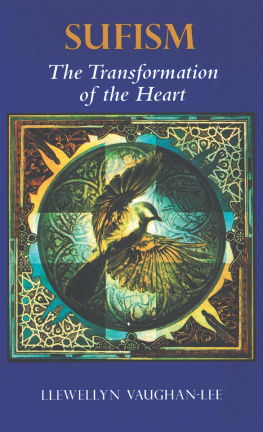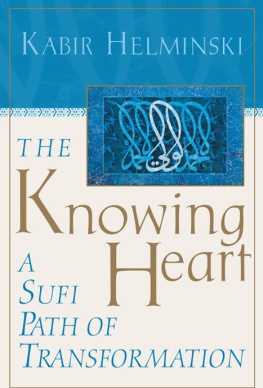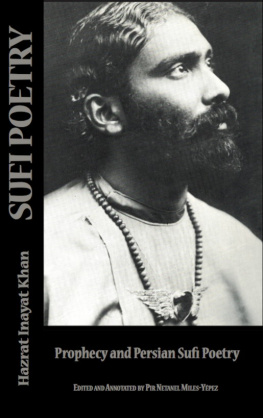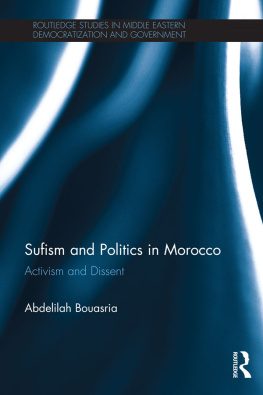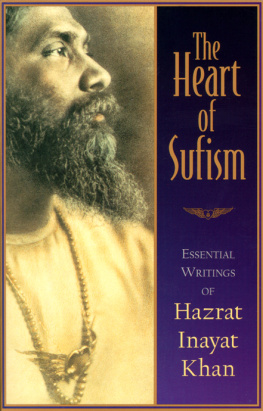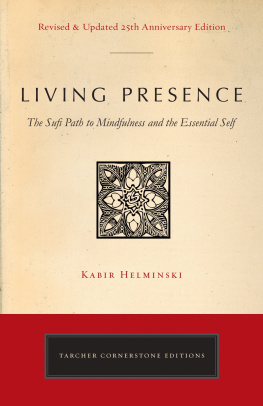PRACTICAL
SUFISM
A GUIDE TO THE SPIRITUAL PATH
Based on the Teachings of Pir Vilayat Inayat Khan
PHILLIP GOWINS

Learn more about Phillip Gowins and his work at http://thesovereignsoul.blogspot.com
Find more books like this at www.questbooks.net
Copyright 2010 by Phillip Gowins
First Quest Edition 2010
Quest Books
Theosophical Publishing House
P. O. Box 270
Wheaton, IL 60187-0270
Without limiting the rights under copyright reserved above, no part of this publication may be reproduced, stored in or introduced into a retrieval system, or transmitted, in any form, or by any means (electronic, mechanical, photocopying, recording, or otherwise), without the prior written permission of the publisher of this book.
The scanning, uploading, and distribution of this book via the Internet or via any other means without the permission of the publisher is illegal and punishable by law. Please purchase only authorized electronic editions, and do not participate in or encourage electronic piracy of copyrighted materials.
While the author has made every effort to provide accurate telephone numbers and Internet addresses at the time of publication, neither the publisher nor the author assumes any responsibility for errors or for changes that occur after publication. Further, the publisher does not have any control over and does not assume any responsibility for author or third-party websites or their content.
Cover design by Beth Hansen-Winter
Library of Congress Cataloging-in-Publication Data
Gowins, Phillip.
Practical sufism: a guide to the spiritual path based on the teachings of Pir Vilayat Khan / Phillip Gowins.1st. Quest ed.
p. cm.
ISBN 978-0-8356-0881-7
1. Sufism. 2. Inayat Khan, Pir Vilayat. I. Title.
| BP189.6G69 2010 |
| 297.4dc22 | 2010017980 |
ISBN for electronic edition, e-pub format: 978-0-8356-2034-5
5 4 3 2 1 * 10 11 12 13 14
To the memory of Pir Vilayat Inayat Khan, my teacher and my friend
Riding on the horse of hope,
Holding in my hand the rein of courage,
Clad in the armor of patience,
And the helmet of endurance on my head,
I started on my journey to the land of love.
Hazrat Inayat Khan
C ONTENTS
F OREWORD
Sufis tend to emphasize that, as a form of communication, words are too limited to have great value. Even Rumi, the prolific poet, whose thirty thousand verses top American best-seller lists 750 years after his death, scoffed at the ability of words to convey that Reality. A Sufi book, then, is something of a paradox. It is a collection of words about something that cannot be conveyed in words. Phillip Gowins, in this insightful personal narrative, acknowledges as much, more than once.
Why read it, then? Rumi, asked a similar question, replied, Words set you searching. They are not the objects of your quest.... Words are like glimpsing movement far in the distance. You start in that direction to see better. And so, in reading the words that follow, you set your feet on a trail.
Just the act of picking up this book and glancing at it suggests that you are a seeker. You may have been intrigued by its title and wanted to know more. You may even have heard about Sufis and wondered who they are.
Like so much else encountered on the Sufi Path, the word Sufi itself is mysterious in its origin and manifold in its meanings. Some are convinced that the word has its origins in the Arabic term for the coarse woolen cloaks that early seekers wore; others insist that it comes from the Arabic word for the verandas where those closest to Muhammad fervently prayed. Another derivation suggests a common ancestry with the Greek sophia, or wisdom. Many prefer to look to saaf, or purity, to explain the name. For Sufis, however, such debates are of only mild interest. It is being that captivates their attention.
The automatic and unthinking response of many scholars is to categorize Sufis as Islamic mystics. Like many definitions connected with the Sufi Path, this one has elements of truth, yet is not completely true. For many centuries, Sufisor, as they are alternately known, dervisheshave found the warmest welcome in countries and areas that have embraced Islam, as a quick glance at the names of Sufi teachers and saints demonstrates. While many Sufis are devout, observant, and orthodox Muslims, however, many others are less orthodox, and many others are adherents of other religions. Sufis frequently point out that, although the name Sufi is associated with the followers of the Prophet Muhammad, spiritual seekers known by other names both predated him and greeted him once he arrived. The Sufi Way is not a religion or a component of a religion but the heart of all religions and spiritualities. So far is it from dogma that Sufi teachers often express their discomfort with the term Sufism, which suggests a rigid and fixed doctrine.
It is also very common for Sufi teachers to spend considerable time and energy explaining other things that the Sufi Path is not. In different ways, the masters all emphasize that Sufis offer no one-size-fits-all philosophy, no shalt and shalt-not commandments, no guarantees, and no clearly delineated goal. As Practical Sufism demonstrates, progress on the path demands a constellation of qualitiescommitment, authenticity, patience, surrender, love, and yearning, among othersbut the evocation and balance of these characteristics are unique for each individual.
Because there is no equivalent of a catechism or a creed for Sufis, teachers are essential. The very presence of a teacher helps a student progress spiritually, and much teaching is transmitted nonverbally. Because teachers are channels for divine light, initiates of Sufi orders preserve knowledge of the silsila, or chain of transmission from one teacher to the next. The silsila can be likened to an electrical cord that carries the charge from the source of power to a particular lamp. Because Sufis adapt to conditions and populations that vary and change, however, there are many groups, or orders, of Sufis. Orders have originated in many locales and are found all over the world. Each order has its own personality and flavor, coming as it does from a particular place and the interpretations of individual teachers. Just as each lamp in a house can appear different and shed light in its own way, though, each order draws on the one source of power acknowledged by all Sufis: Divine Love. A Sufi may be affiliated with the Naqshbandi Order, or the Niamatullah, Mev-levi, Qadiri, Rifai, Bektashi, Tijani, Shadhili, or one of many others. The distinctions among Sufis are considered much more significant than their similarities.
The author of the present book is part of the Sufi Order International, a Chishti branch of the Sufi Path. The silsila of this order, like those of all genuine Sufi orders, begins with the Divine One, followed by the Angel Jibrail, or Gabriel, and then the Prophet Muhammad and the blessed Ali. It proceeds to a thirteenth-century Syrian saint who initiated Afghanis in the Sufi Way and from there to a series of saints who migrated to Gujarat, India, and taught there for hundreds of years.
In 1910, an initiate of this order, under instructions from his own spiritual teacher, brought the Sufi Message to the West. Hazrat Inayat Khan thus began a great spiritual awakening and transformation of those who heard him speak and read his writings. In the span of only seventeen years, Pir-o-Murshid (Leader and Teacher) Hazrat (Holy Presence) Inayat Khan begin the Sufi Movement in North America and Europe. A gifted and celebrated master of Indian classical music, he sacrificed his composing and performing to teach tolerance, love, unity, and consciousness. Upon his early death, his son Pir Vilayat Inayat Khan succeeded him. In 2000, Hazrat Inayat Khans grandson, Pir Zia Inayat Khan, assumed leadership of the Sufi Order. These are the teachers of whom Phillip Gowins writes. His many years of close communion with Pir Vilayat and his decades of teaching and leadership enable him to write from experience and first-hand knowledge about

